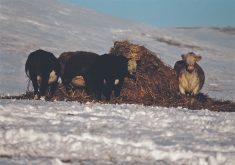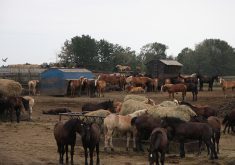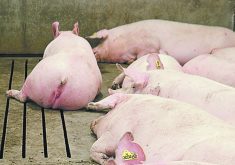A Conservative MP says the proposed bill may put ‘legitimate and necessary animal use practices in legal jeopardy’
Animal protection groups across Canada support the latest attempt to modernize animal cruelty laws.
Liberal MP Nathaniel Erskine-Smith of Toronto has drafted a private members bill designed to better protect animals in legislation.
World Animal Protection International has given Canada a D rating for its dismissal of animal sentience. Its report addresses the language within legislation that hasn’t been revised since 1892.
“There is no recognition of animal feelings or consciousness in legislation at the federal level,” the report said.
Ewa Demianowicz, campaign manager for Humane Society International in Canada, worked with Erskine-Smith to draft the bill.
Read Also

Beef check-off collection system aligns across the country
A single and aligned check-off collection system based on where producers live makes the system equal said Chad Ross, Saskatchewan Cattle Association chair.
“These improvements to the criminal code are long overdue,” Demianowicz said.
Prohibiting cat and dog fur sales and shark finning are welcome amendments, but the language choice within the bill has met with opposition.
“I am looking at the Criminal Code (of Canada) side. I am not looking at the cat and dog or shark finning matters,” Conservative MP Robert Sopuck of Manitoba told the House of Commons May 9.
“I fear the language in Bill C-246 will not, in fact, crack down on those who willfully harm animals but instead will put legitimate and necessary animal use practices in legal jeopardy.”
Sopuck recently wrote a column about the issue in the Toronto Sun that said removing animals from the section that deals with offences against property, and placing them in the section that deals with offenses against persons, implies that animals are entitled to rights similar to persons.
Demianowicz disagreed.
“In 1892, animals were seen as property, but they are distinct from a table or a chair,” she said.
“They will still be considered animals and have a different section created for them, so there’s nowhere there that says they’re humans or that they have more rights than they have right now.”
Sopuck also opposes adding the words “recklessly” and “negligently” to the criminal code. He told the House it would unfairly expand criminalization to those who are clumsy or incompetent.
Erskine-Smith said the language should be revised if unintended consequences are a significant concern.
“If people have questions, I encourage them to contact me. I’m happy to answer them. I’m open to changes,” he said.
He recently met with Beef Farmers of Ontario.
“By the time we finished our meeting, they didn’t have the same concerns,” he said. “Farmers engage in willful conduct. They are intentional about their actions. But what they do is not unnecessary pain and suffering to animals. They are engaging in legitimate animal use in our society.
“My in-laws are farmers … and in no way do I want to affect those practices,” he said.
“The criminal code is a place to punish immoral conduct in our society, if you are actively waiving your obligation.
Farmer’s don’t do that. Farmers look out for their animals. I wish I could say again and again this has nothing to do with farmers.”
Provincial animal protection laws are strict liability offences.
“With the criminal code, you have to prove willfulness or recklessness,” said Kaley Pugh, manager of Animal Protection Services of Sask-atchewan.
She has seen a decline in animal cruelty complaints in Saskatchewan, but noted she has also seen loopholes.
“Animals in distress and the elements of distress are generally similar across all of the different legislations, (although) the burden of proof is somewhat different,” Pugh said.
“It hasn’t been revised in a meaningful way in a long time.”
If passed, Erskine-Smith’s bill would amend the Criminal Code, the Canada Consumer Product Safety Act, the Fisheries Act, the Textile Labelling Act and the Wild Animal and Plant Protection and Regulation of International and Interprovincial Trade Act.
“In practice, these laws do not work to protect animals, and this is why it’s important to modernize our language to make sure that those acts of cruelty that happen to animals are addressed properly,” said Demianowicz.

















